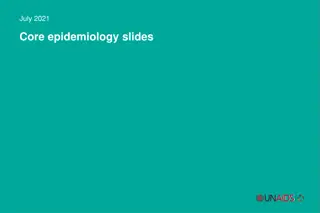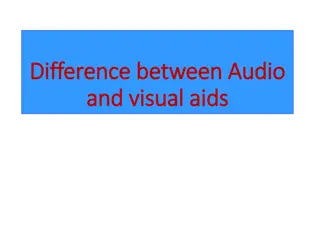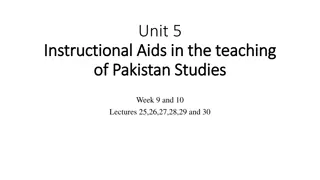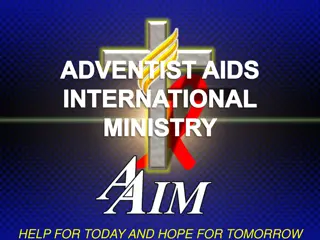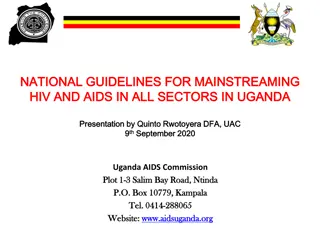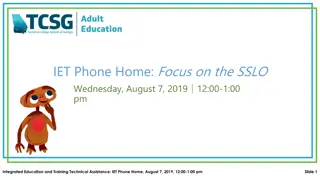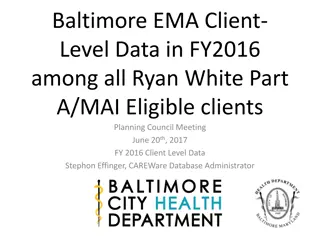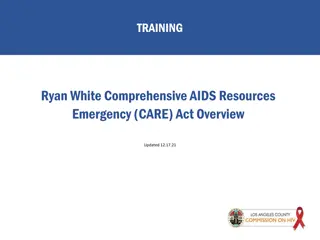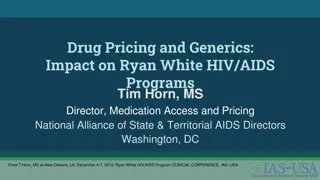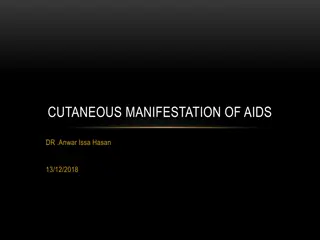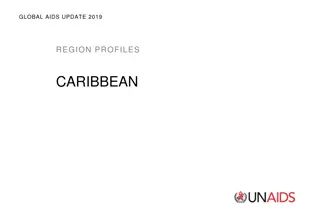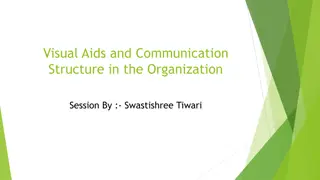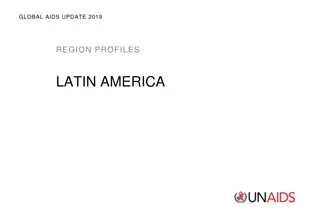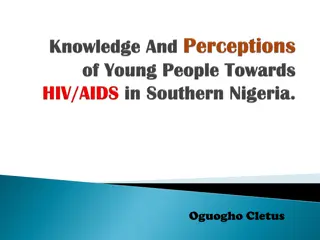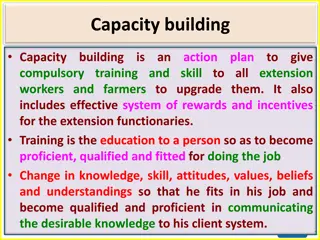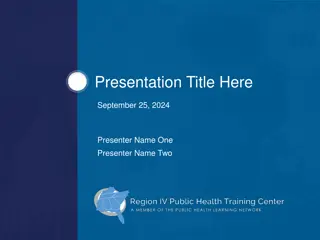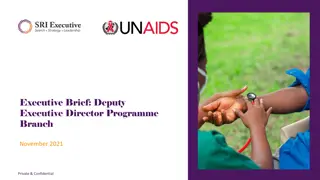Overview of AIDS Education & Training Center (AETC) Program
The AIDS Education & Training Center (AETC) Program, supported by HRSA, aims to provide education and assistance for healthcare providers in HIV care, prevention, and treatment. The program serves healthcare professionals at all levels and fosters collaboration through regional and national centers. Its mission is to increase HIV knowledge and prevention practices among healthcare providers.
Download Presentation

Please find below an Image/Link to download the presentation.
The content on the website is provided AS IS for your information and personal use only. It may not be sold, licensed, or shared on other websites without obtaining consent from the author. Download presentation by click this link. If you encounter any issues during the download, it is possible that the publisher has removed the file from their server.
E N D
Presentation Transcript
An Introduction to the AIDS Education & Training Center (AETC) Program January 2021
2 This project is supported by the Health Resources and Services Administration (HRSA) of the U.S. Department of Health and Human Services (HHS) under grant number U1OHA28686 (AIDS Education & Training Centers National Coordinating Resource Center) awarded to Rutgers University School of Nursing, Fran ois-Xavier Bagnoud Center. No percentage of this project was financed with non-governmental sources. This information or content and conclusions are those of the authors and should not be construed as the official position or policy of, nor should any endorsements be inferred by HRSA, HHS or the U.S. Government. August 3, 2024
3 About the AETC Program The AETC Program, a national program of leading HIV experts, provides locally based, tailored education and technical assistance to healthcare teams and systems to integrate comprehensive care for those living with, at risk of, or affected by HIV. The AETC Program transforms HIV care by building the capacity to provide accessible, high-quality treatment and services throughout the United States and its territories. August 3, 2024
4 Mission To increase the number of healthcare providers who are effectively educated and motivated to counsel, diagnose, treat, and medically manage people with HIV, and to help prevent behaviors leading to HIV transmission. August 3, 2024
5 Who We Serve All healthcare providers (from novice to expert) Health profession students and faculty Other multidisciplinary HIV care team members August 3, 2024
6 Map of the 8 Regional AETCs August 3, 2024
7 National AETCs: NCRC National Coordinating Resource Center Fran ois-Xavier Bagnoud Center, Rutgers School of Nursing Centralizes free training and clinical materials through a virtual library: aidsetc.org Maintains the AETC Program Directory Fosters collaboration and group facilitation among AETCs and with external partners Provides AETC Program promotional, marketing and communications services Coordinates the annual Ryan White HIV/AIDS Program Clinical Conference August 3, 2024
8 National AETCs: NCCC National Clinician Consultation Center University of California at San Francisco: nccc.ucsf.edu Free expert clinician consultation to healthcare providers through phone and e-consultation: HIV Management Warmline: individualized expert multidisciplinary consultation on HIV care and management Substance Use Warmline: point-of-care education and clinical decision support for health care providers with questions regarding substance use evaluation and management PEPline: real time management of post-exposure prophylaxis to HIV, hepatitis and other bloodborne pathogens Perinatal HIV Hotline: consultation for HIV testing and care during pregnancy, labor and delivery, and the postpartum period PrEPline: for questions about pre-exposure prophylaxis as a prevention tool Hepatitis C Management: for advice on hepatitis C mono-infection management from testing to initiating treatment to managing advanced disease e-CCS Online Consultation: register at nccc.ucsf.edu to submit questions about HIV management and case-tracking online August 3, 2024
9 Training Modalities Overview Training Modalities Description Didactic Presentations Didactic presentations, panel discussions, journal clubs, teleconferences and other formats Interactive Presentations Interactive learning through discussion of cases supplied by a trainer, role play, simulated patients, and train-the-trainer and other skill building activities Communities of Practice Collaborative networks working together to improve organizational operations Self-study Self-instructional materials, web-based courses and curricula, videos Clinical Preceptorships Preceptorships, "mini-residencies," or observation of clinical care at either the AETC training site or the trainee's workplace Clinical Consultation Consultation, case-based discussion with cases supplied by trainee, or on-site clinical consultation at trainee s clinical setting Coaching for Organizational Capacity Building Organizational technical assistance and capacity building August 3, 2024
10 Key Statistics Top 3 Training Activities* Lecture/Workshop Role play/Simulation Chart/Case Review Top 3 Healthcare Professions/Disciplines Trained** Nurses/ Advanced Practice Nurses Physicians Other Non-clinical Professional >145 active resources available on the AETC NCRC website*** >106,000 unique website users, >322,500 website pageviews*** AETC NCCC service lines receive >12,000 calls a year *** 45.9% MD/DO 35% NP/CNM/PA 13.6% RN/LVN 2.7% Pharmacists *2017 AETC Annual Data Report 7/1/16 6/30/17 **2017 AETC Annual Data Report 7/1/15 6/30/16 ***2019 AETC Annual Data Report 7/1/19 6/30/20 August 3, 2024
11 National HIV Curriculum postcard image August 3, 2024
12 NHC postcard image side 2 www.hiv.uw.edu Visit https://aidsetc.org/resource/national-hiv-curriculum-promotional-materials for more information and promotional resources August 3, 2024
13 AETC Special Projects Integrating the National HIV Curriculum e-Learning Platform into Health Care Provider Professional Education The focus of this project is the integration of the National HIV Curriculum e-Learning Platform into the education and training curricula of multiple health professions institutions with an emphasis on medical, nursing, and pharmacy programs, including graduate education/residency programs. Midwest Integration of the National HIV Curriculum (MINHC) Howard University - National HIV Curriculum Integration Project (H-NIP) https://aidsetc.org/aetc-program/e-learning-integration August 3, 2024
14 AETC Special Projects (continued) Ending the HIV Epidemic Initiative (EHE) Each of the eight AETC regions has at least one EHE participating jurisdiction. The regional AETCs will support EHE activities in their regions with targeted training and technical assistance. The two national AETCs are supporting the initiative and the AETC network https://aidsetc.org/directory/aetcs-and-ending-hiv-epidemic-initiative August 3, 2024
15 Collaborations Minority AIDS Initiative (MAI) Center for Quality Improvement and Innovation (CQII) TargetHIV HRSA Special Projects of National Significance (SPNS) and other Ryan White HIV/AIDS Program initiatives HRSA Bureau of Primary Health Care (BPHC) U.S. Centers for Disease Control and Prevention (CDC) Substance Abuse and Mental Health Services Administration (SAMHSA) Community Based Organizations (CBOs) August 3, 2024
16 For More Information Contact the AETC NCRC at info@aidsetc.org Visit the AETC NCRC website at aidsetc.org Access the NHC at http://aidsetc.org/nhc Read the AETC blog ShareSpot at http://blog.aidsetc.org Like us on Facebook at https://facebook.com/AETCNCRC/ Follow us on Twitter at https://twitter.com/AETCNCRC Watch us on YouTube at https://youtube.com/user/AETCNRC Repin on Pinterest at https://www.pinterest.com/aetcncrc/ Connect on LinkedIn at https://www.linkedin.com/in/aetcncrc/ Download the 2017 AETC Annual Data Report: https://hab.hrsa.gov/sites/default/files/hab/data/datareports/hrsa-aetc-annual-data-report-2017.pdf August 3, 2024





